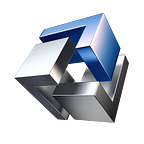Tron Blockchain Mastery: A Deep Dive into High Throughput and Decentralized Applications — The Blockchain Academy
In the contemporary blockchain landscape, Tron stands out as a groundbreaking platform renowned for its high transaction throughput and efficient smart contract capabilities. Since its inception, Tron has been at the forefront of the decentralized application (dApp) revolution, offering a robust ecosystem for developers and users alike. This article aims to provide a comprehensive understanding of the Tron blockchain, exploring its unique architecture, consensus mechanism, development environment, and the practical aspects of building and deploying dApps on the Tron network.
Tron’s Blockchain Architecture and Consensus Mechanism
Tron’s architecture is ingeniously crafted to maximize efficiency and scalability. Central to its design is a unique multi-layered approach, consisting of the core layer, storage layer, and application layer. Each layer is meticulously engineered to perform specific functions, ensuring that the Tron network operates seamlessly and efficiently.
At the heart of Tron’s performance is its consensus mechanism — Delegated Proof of Stake (DPoS). Unlike traditional Proof of Work (PoW) systems, DPoS significantly reduces energy consumption and enhances transaction speeds. In this system, TRX token holders vote for a small number of delegates responsible for validating transactions and creating blocks. This mechanism not only accelerates transaction processing but also democratizes network governance, as stakeholders have a say in who becomes a delegate.
The Tron network is further characterized by its distinct nodes and network topology. Super Representatives (SRs) play a pivotal role, acting as the elected delegates in the DPoS system. The network also features a robust node infrastructure, ensuring decentralization and high resilience against network attacks.
Smart Contract Development on Tron
Smart contract development is a cornerstone of Tron’s functionality. The Tron Virtual Machine (TVM) is a standout feature, compatible with Ethereum’s EVM, which simplifies the transition for developers already familiar with Ethereum’s development environment. TVM is lightweight, Turing complete, and can execute smart contracts efficiently, providing a fertile ground for innovative dApp development.
Developing smart contracts for Tron requires proficiency in Solidity, the programming language also used for Ethereum. However, Tron-specific considerations such as energy consumption and storage requirements must be factored into the development process. Developers can take advantage of various tools and platforms like Tron Studio, TronBox, and TronGrid, which streamline the development, testing, and deployment of smart contracts on the network.
Security in smart contract development is paramount. Tron provides several mechanisms and best practices to mitigate common vulnerabilities, ensuring the robustness and reliability of deployed contracts.
Building Decentralized Applications (dApps) on Tron
The dApp ecosystem in Tron is both vibrant and diverse, encompassing a wide array of applications from gaming to finance. Building a dApp on Tron involves several key steps, starting from conceptualization to front-end integration and deployment.
Designing a dApp on Tron requires a deep understanding of blockchain technology and Tron’s specific features. Developers need to plan their dApp’s architecture, considering aspects like user interaction, transaction processing, and data storage. The front-end integration is crucial for user experience, demanding a seamless and intuitive interface that communicates efficiently with the Tron blockchain.
Deployment strategies for dApps on Tron should focus on scalability and efficiency. Developers must ensure their applications can handle varying loads, maintaining performance and reliability. Additionally, continuous performance optimization is necessary to adapt to the evolving demands and growth of the Tron network.
Tron in DeFi and NFT Space
Tron’s entry into the Decentralized Finance (DeFi) space has been transformative. The platform offers a high-performance and cost-effective environment for developing DeFi applications. Its high throughput and low transaction costs make it an ideal choice for DeFi projects, which require fast and efficient transaction processing.
The Non-Fungible Token (NFT) market on Tron has also seen significant growth. The platform supports the creation, management, and trading of NFTs, providing creators and collectors a robust and flexible environment. Tron’s approach to cross-chain interoperability further enhances its NFT ecosystem, allowing seamless movement of assets across different blockchain networks.
Understanding the regulatory aspects and compliance is essential for developers venturing into DeFi and NFT projects on Tron. The platform provides guidance and support to navigate the legal framework, ensuring that applications adhere to necessary regulations and standards.
Advanced Topics and Future Trends in Tron
Governance and community involvement are integral to Tron’s ethos. The platform encourages active participation from its community in network decisions, fostering a sense of ownership and involvement among its users. This democratic approach to governance ensures that the network evolves in alignment with the community’s needs and preferences.
Tron is also exploring scaling solutions and Layer-2 technologies to enhance its performance and capabilities. These developments are poised to increase transaction throughput further, reduce costs, and expand the network’s capacity to accommodate a growing number of applications.
Tron’s global impact and adoption have been noteworthy, with several case studies illustrating its effectiveness in various sectors. Looking ahead, the future roadmap of Tron is focused on continuous innovation, with upcoming features and strategic directions aimed at maintaining its competitive edge in the blockchain space.
Tron Blockchain Mastery underscores the platform’s commitment to providing a high-performance, efficient, and user-friendly environment for dApp development and deployment. Its innovative architecture, DPoS consensus mechanism, and robust smart contract and dApp ecosystem make it a formidable player in the blockchain world. As Tron continues to evolve and adapt to new challenges and opportunities, it remains a pivotal force in shaping the future of decentralized applications and blockchain technology.
Originally published at https://theblockchainacademy.com on February 14, 2024.
